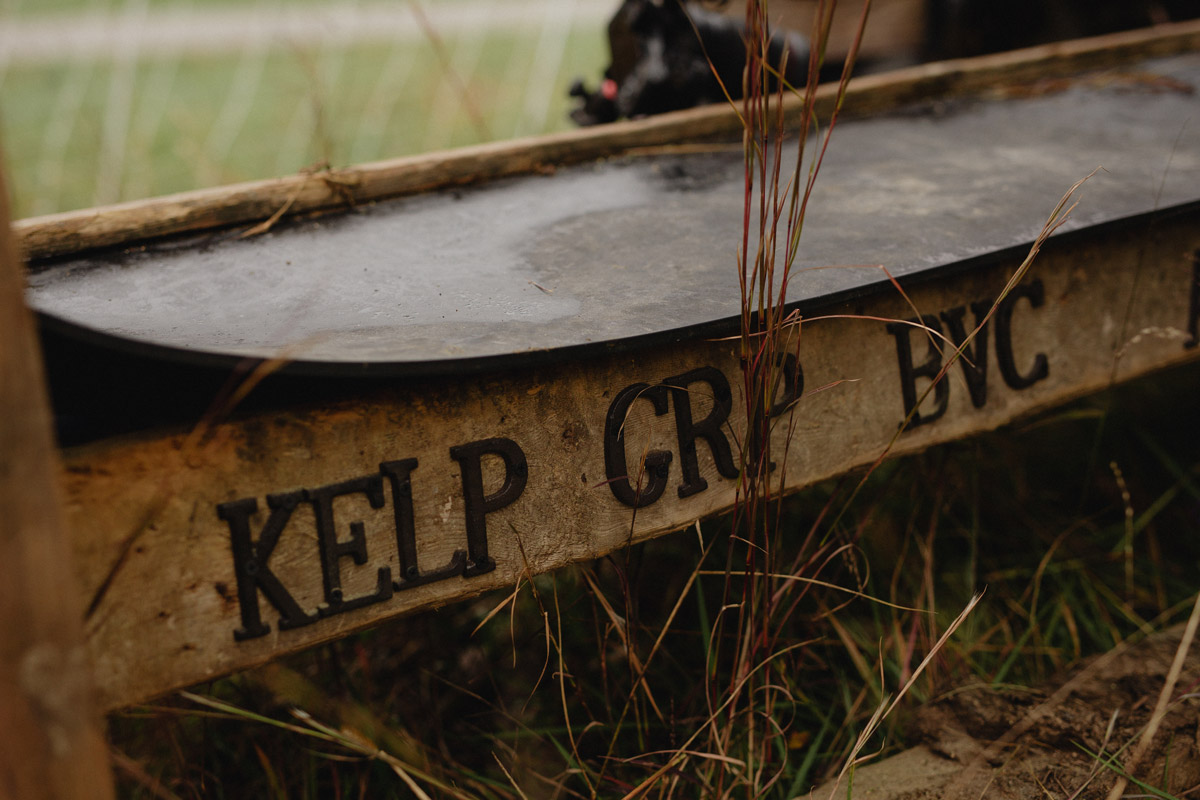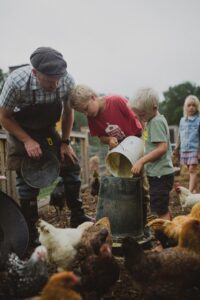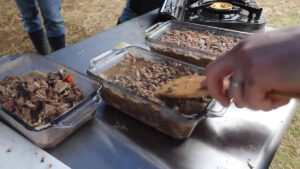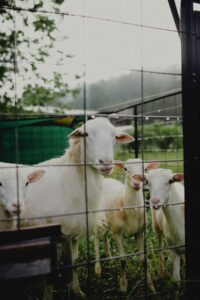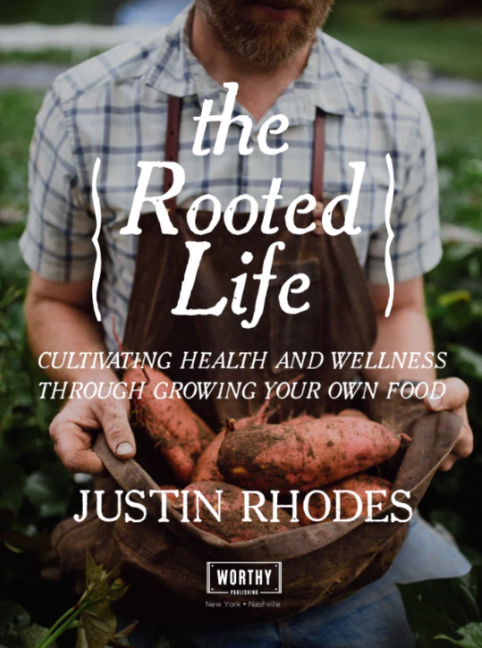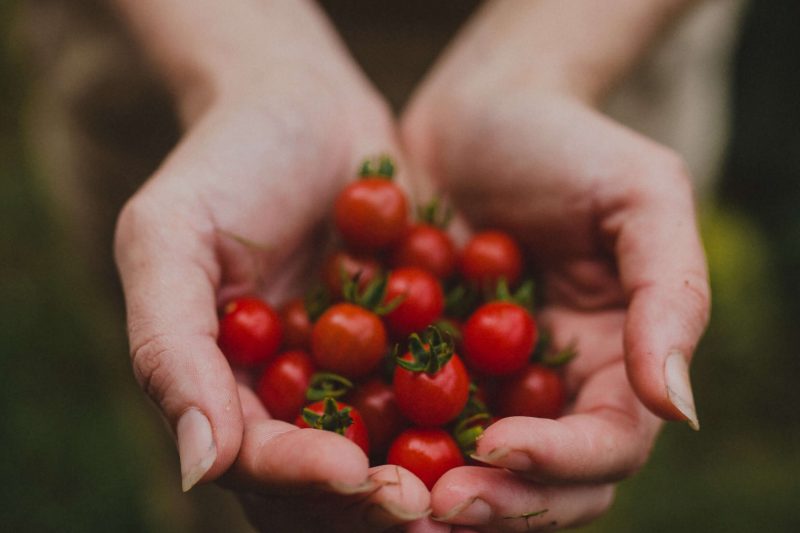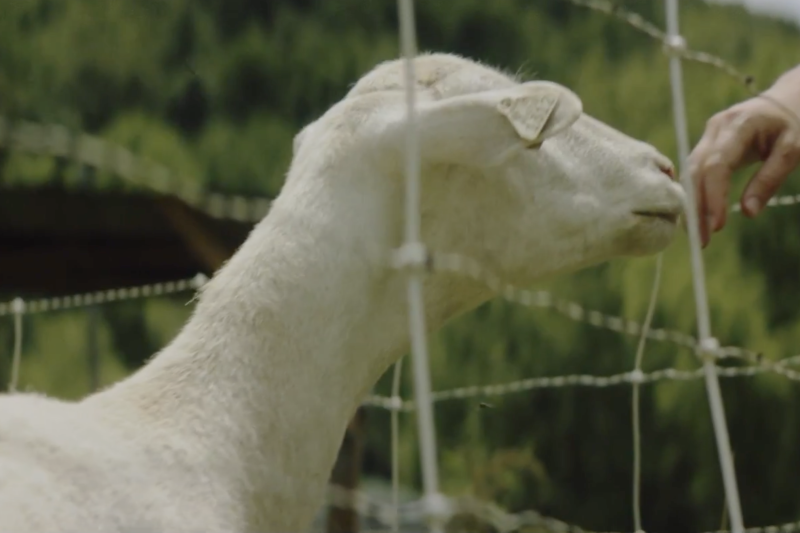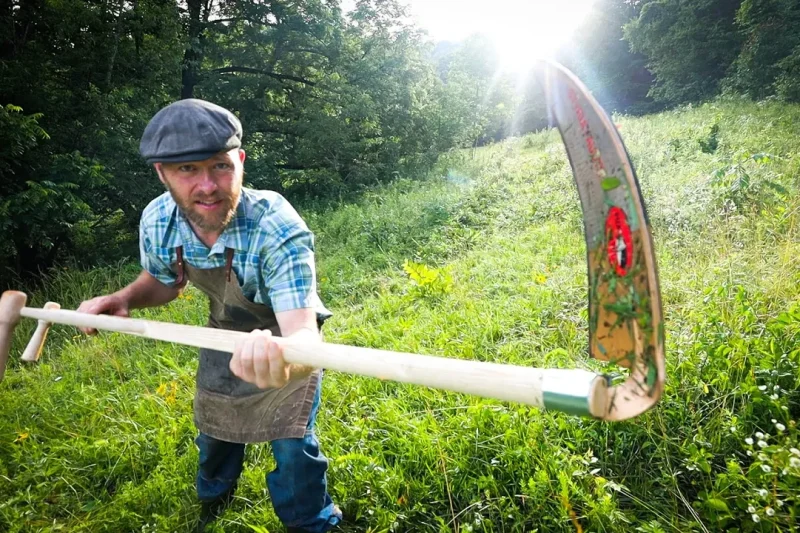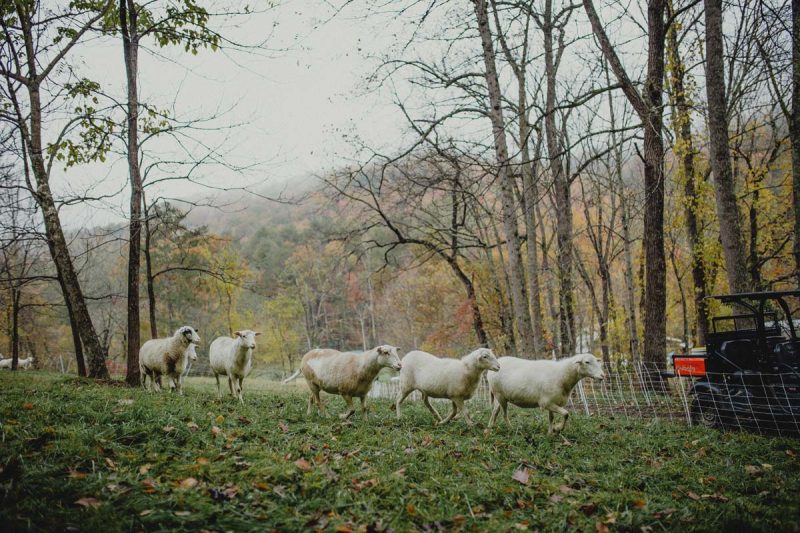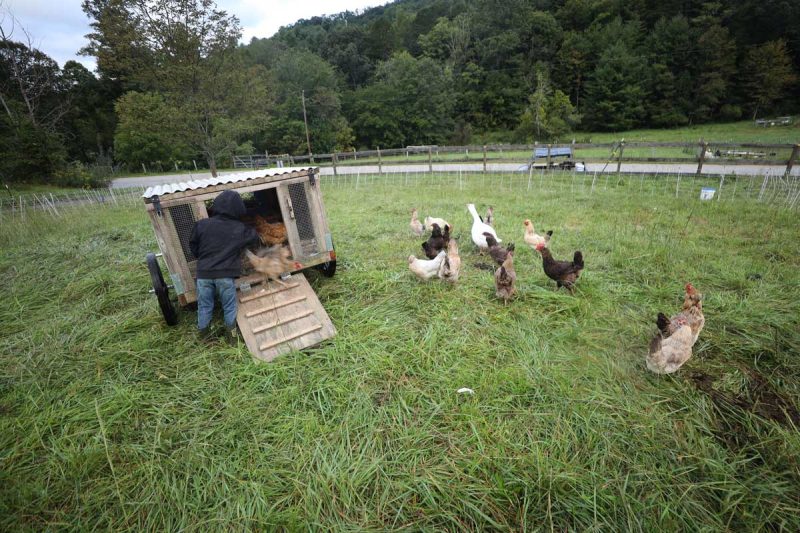Read on to learn what these proper minerals are, and how they improve not only the health of your animals but your pasture as well.
Why I Use Mineral Supplements
I learned from long-time animal farmer Greg Judy that animals need a variety of minerals that aren’t always available from the land.
But, here’s the kicker. You don’t need to measure out specified ounces daily to ensure the right amount of minerals are supplemented.
Ruminants sense what minerals aren’t available in each paddock and will eat more of a free-choice mineral. So they eat the mineral that’s lacking, absorb some and then poop out the rest.
Do you understand what’s happening!? The cows and sheep are remineralizing your pasture! So, in theory, as the pasture becomes remineralized to feed the animals, the number of minerals you need to supplement will decrease over time.
That’s a nice theory and all, but does it work? When I visited Greg in late 2019 to buy my breeding stock of sheep from him, he found that over the years, his sheep are eating 60% fewer minerals!
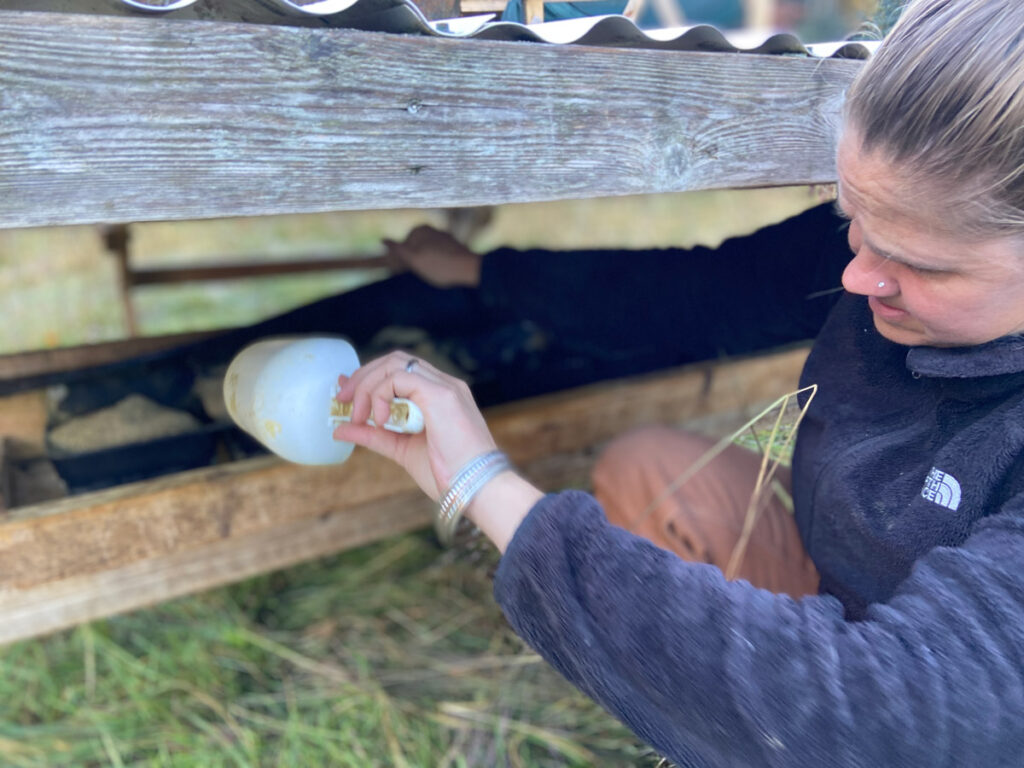
Offering Free Choice Minerals to Animals
Over the last several years, I’ve implemented a mineral program for my cows and sheep that includes up to 19 minerals (and/or supplements), and I’m confident it’s making a HUGE difference in the overall health of my livestock and farm.
It’s important to offer multiple minerals free choice so that the animals and land can get exactly what they need. Many of us already know the importance of a salt lick. Most salt licks contain a high concentration of sodium, phosphorus, iron, zinc and calcium. Still, often your animals will overeat the salt lick just to get the one ingredient they really need.
So what’s the major benefit of free choice minerals? Well, according to Advanced Biological Concepts (where I get my minerals), “(free choice minerals) not only allows the animal to satisfy mineral deficiencies of the present ration, but it also allows the animal to consume additional minerals, as necessary, to satisfy tissue deficiencies caused by previously unbalanced rations.”
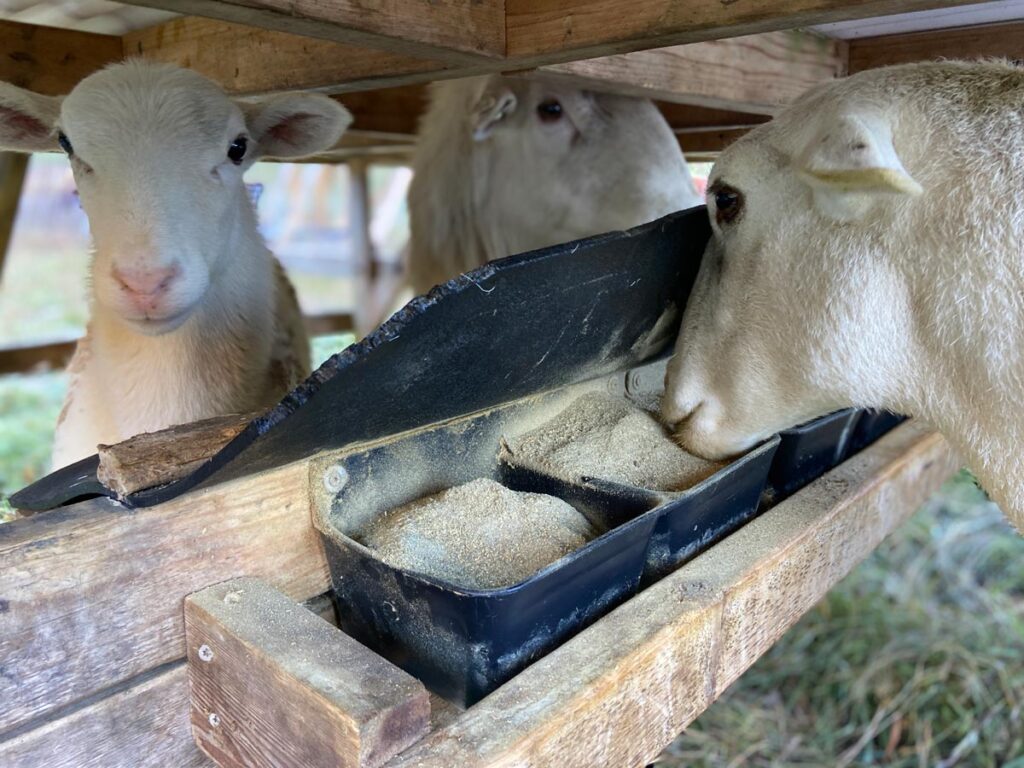
What Minerals Are Important
When minerals are in balance, you’ll see more efficient use of feed. Additionally, you will notice improved digestion, reproductive performance, and high levels of increased growth. You’ll experience less sickness.
Listed below are minerals we supplement with and how they can help your ruminant animals.
Iodine
Iodine helps to regulate the thyroid glands, which produce the hormone thyroxine. Thyroxine regulates the body’s metabolism and aids in growth and development.
Low iodine can cause weak or deformed offspring that fail to thrive. It can also cause miscarriage and other reproductive problems. Furthermore, severe deficiencies can result in goiter.

Vitamin A
Vitamin A is needed to promote proper eyesight and prevent night blindness. Colostrum is very high in Vitamin A, which is why it’s so essential for calves. Vitamin A also helps to maintain the skin and lining of the reproductive, digestive and respiratory tracts.
Vitamin D
Vitamin D is vital for proper bone growth and aids in reproduction. It’s also necessary to aid in the absorption of calcium and phosphorus. Vitamin D prevents rickets.
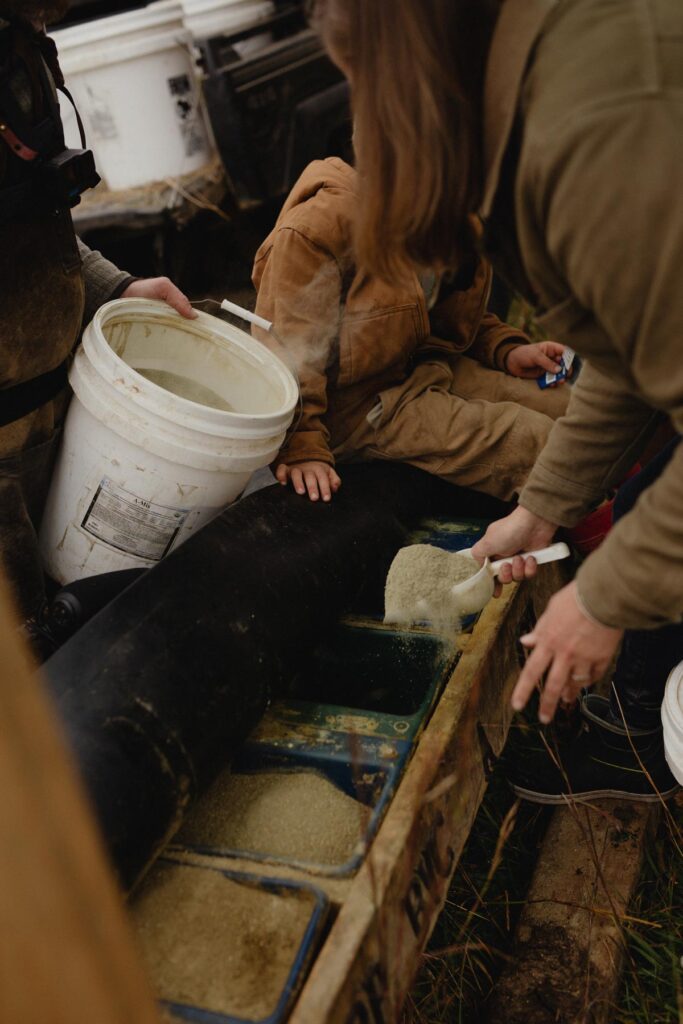
Vitamin E
Vitamin E aids in the absorption of Vitamin A. It’s also vital for healthy enzymes and hormonal systems.
B Vitamins
B Vitamins are necessary for breaking fats, proteins, and carbohydrates into energy. B Vitamins are known as stress vitamins because they also ensure a healthy nervous system, brain and adrenals.
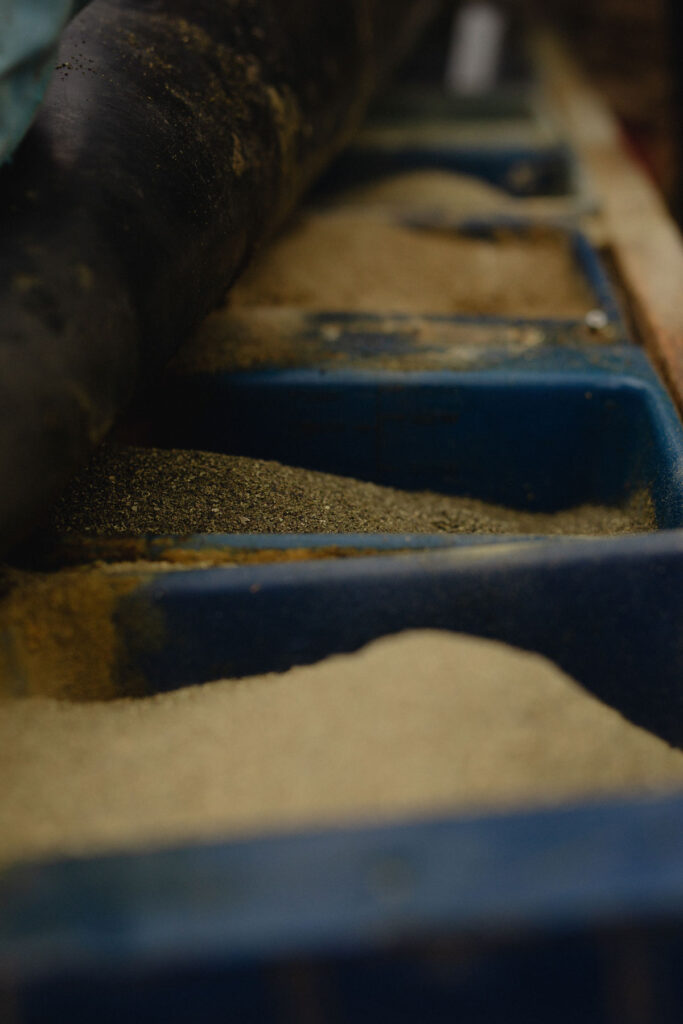
Calcium
Calcium and phosphorus are essential for strong bones and teeth, weight gain and reproduction. Calcium regulates how our cells take in nutrients, and it’s the number one mineral that aids in milk production in a lactating cow.
Iron and Copper
Iron and copper work together, making hemoglobin for healthy blood.
Deficiencies in these essential minerals can cause anemia in calves, fungal diseases, cowpox, diarrhea, liver fluke, ringworm, staph infections and more.
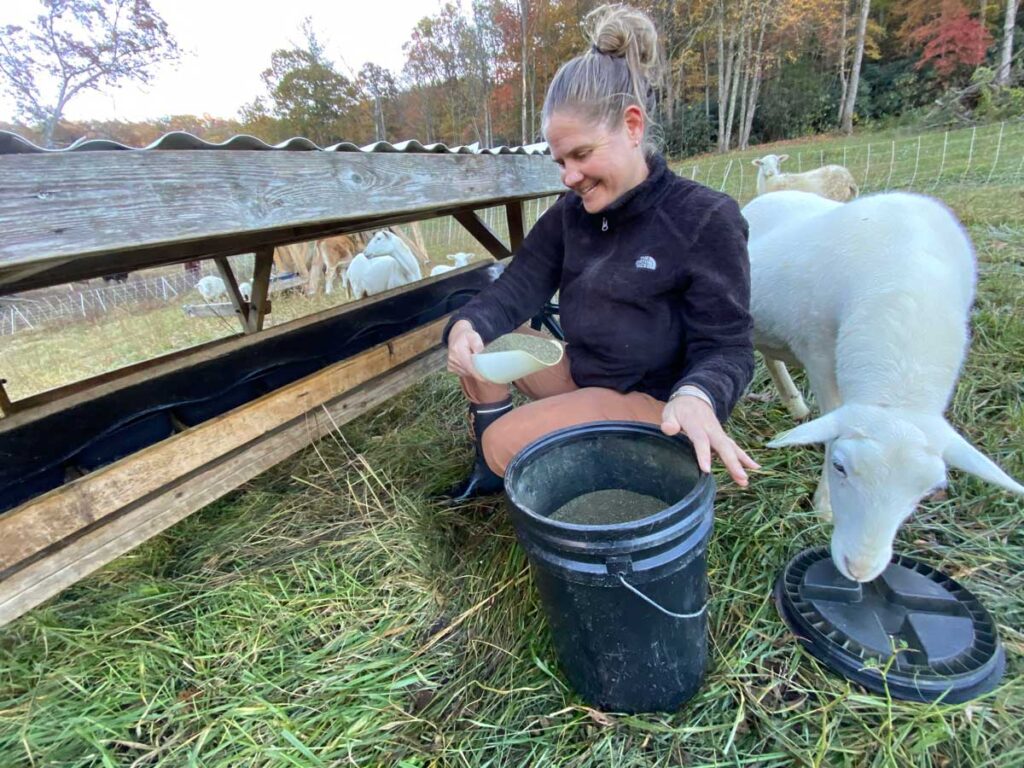
Magnesium
Magnesium is essential for proper bone and blood development.
Magnesium deficiency can cause milk fever, mastitis, arthritis, soft teeth, nervous behavior and deformed bones.
Potassium
Potassium is important for proper growth and healthy nerves. Combined with calcium and phosphorus, it’s essential for bone building. It aids in proper bacterial growth in the gut.
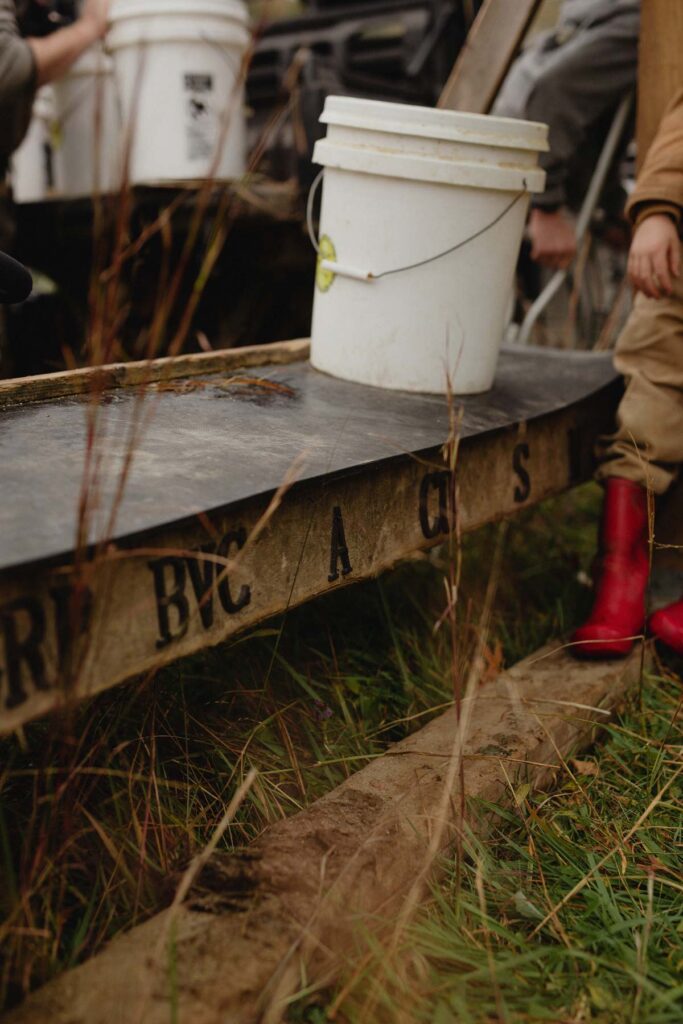
Phosphorus
Phosphorus is important for growth and reproduction. Phosphorus is tied to more bodily functions than any other nutrient. It helps to build strong bones and teeth. It’s essential in balancing the pressure in cells.
If a cow is low in phosphorus, she will have difficulty carrying a calf.
Sulfur
Sulfur is essential for healthy coats, hooves and horns. Sulfur is also used by a calf while still in utero.
Cattle low in sulfur may have lice, ticks, or other parasites. They will also not digest their feed correctly.
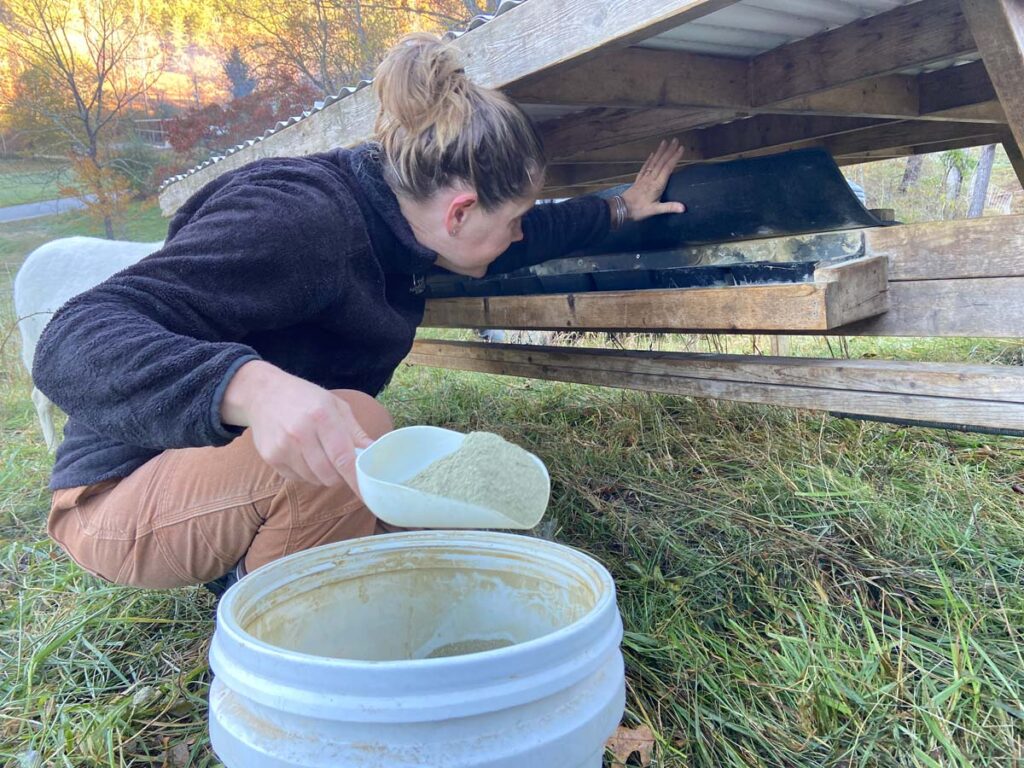
Trace Minerals + Selenium
Trace minerals include cobalt, zinc and manganese. The need for these trace elements has increased as the depletion of minerals in soil has decreased. Manganese affects the body’s ability to use calcium and carbohydrates, and cobalt is needed to prevent anemia and weakness.
Zinc
Being deficient in zinc causes skin lesions, weak legs, slow wound healing, heel cracks and poor growth. A zinc deficiency may also appear in lower conception rates. Zinc helps to build a healthier immune system.
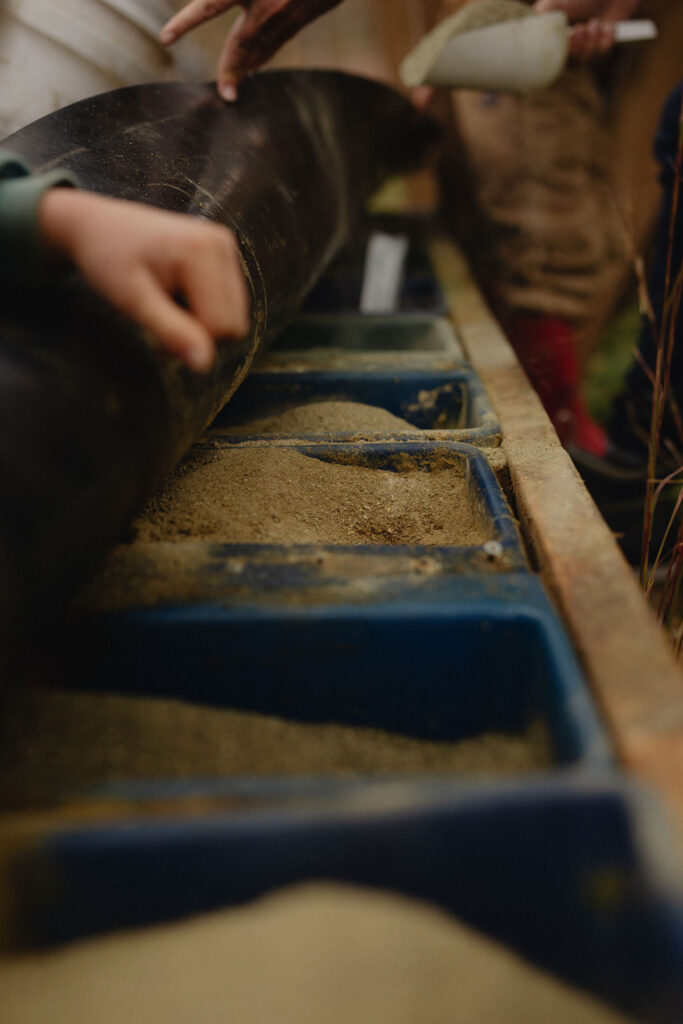
Vitamin C
Vitamin C is essential for boosting the immune system. Young ruminants may develop skin lesions similar to scurvy in diets too low in Vitamin C.
Charcoal
Cattle producers mix activated charcoal into their animal feed to improve the herd’s health. It helps cure diarrhea in young cattle and cures scours and coccidiosis.
Where Do Ruminants Get Minerals
There are three main sources of minerals for grazing animals.
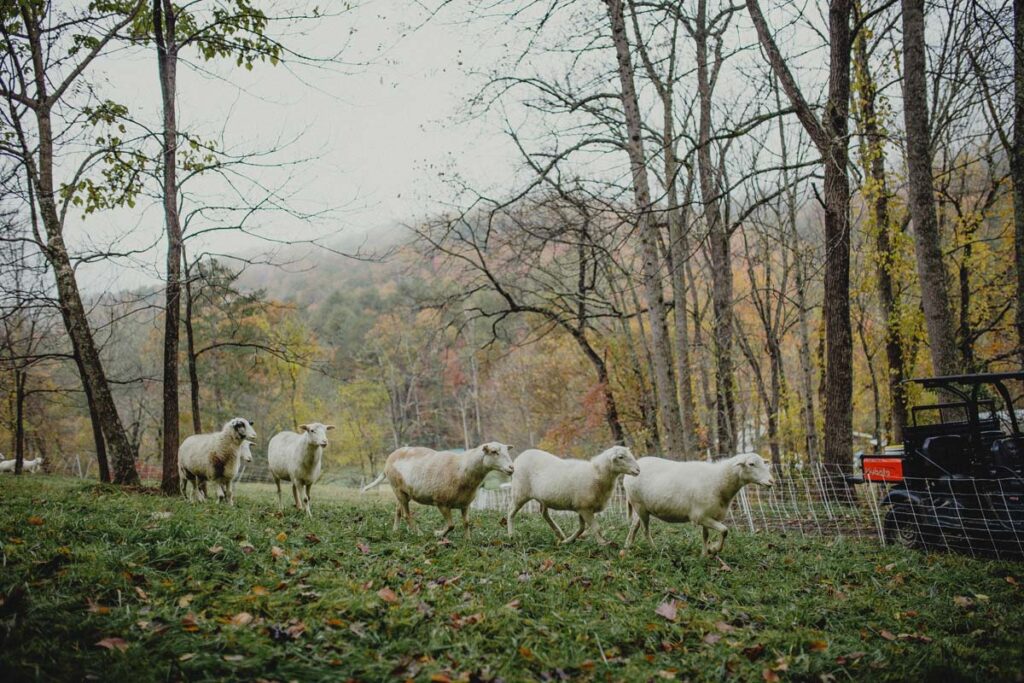
Pasture
Often the pasture land where your animals graze will be the main mineral source for what they need. A typical grass and alfalfa pasture will contain calcium and phosphorus.
Often beef cattle diets require more nutrients and minerals than the pasture can provide. Mineral requirements are also higher for pregnant and nursing ruminants.
Mineral Supplement
Mineral supplements are the easiest way to ensure proper mineral nutrition. The number of minerals required will depend on the animal and where the animal grazes. I recommend the mineral mixture ABC 15 mineral kit.
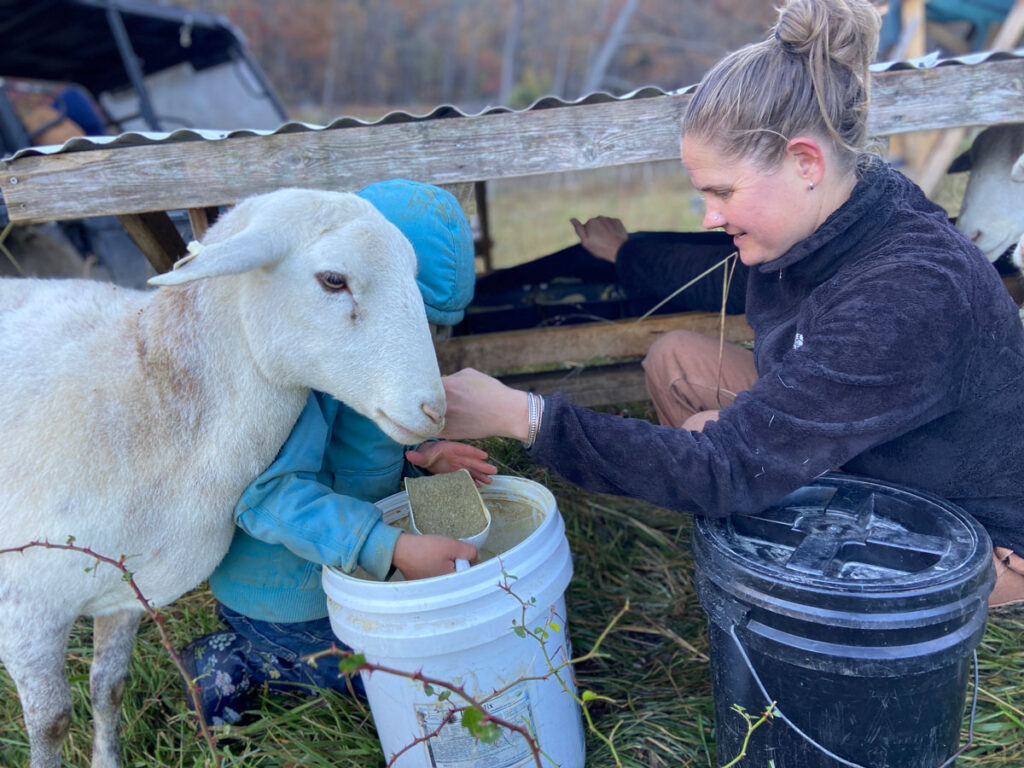
Preventative Health Measures for Sheep
Proper mineral supplementation can cure ruminants’ many health problems.
Nutritional Muscular Dystrophy (White Muscle Disease)
Harmful free radicals can be generated if your ruminants have a selenium deficiency. This mineral deficiency symptom will present as damage to the muscles of the heart and limbs.
Goiter
Goiter will appear as defined swelling in the throat area of a newborn ruminant. The newborn is born weak and will often starve. The cause is iodine deficiency.
Polioencephalomalacia
This disease will show up as weakness, blindness and depression in your animal. B Vitamins are the treatment for this ruminant disease.
Rickets
Rickets appear as swelling at the end of the long bones, lameness and inability to bear weight. Rickets is caused by a diet lacking calcium, phosphorus and Vitamin D.
Calcium Deficiency
Calcium deficiency will present as weakness, muscle tremors and inability to get up off the ground. Prevent this with free choice calcium minerals.
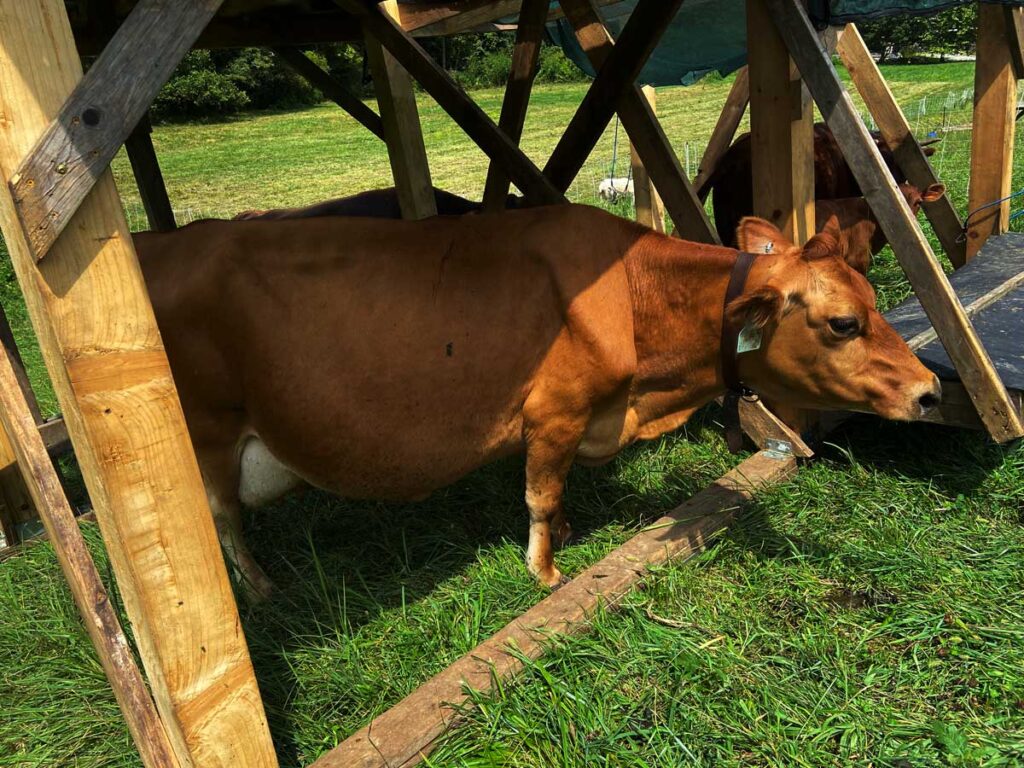
Preventative Health Measures for Cattle
Grazing cattle cannot get all the minerals they need from pasture grass alone, and mineral supplementation can help prevent these health conditions.
Retained Placenta
Retained placenta is when the placenta is not delivered within 30 minutes after the calf is born. It’s a problem that can lead to blood loss or infection. It’s not a common problem but can be severe.
Several minerals can help to prevent retained placentas, including Vitamin A, Selenium, Iodine and Vitamin E.
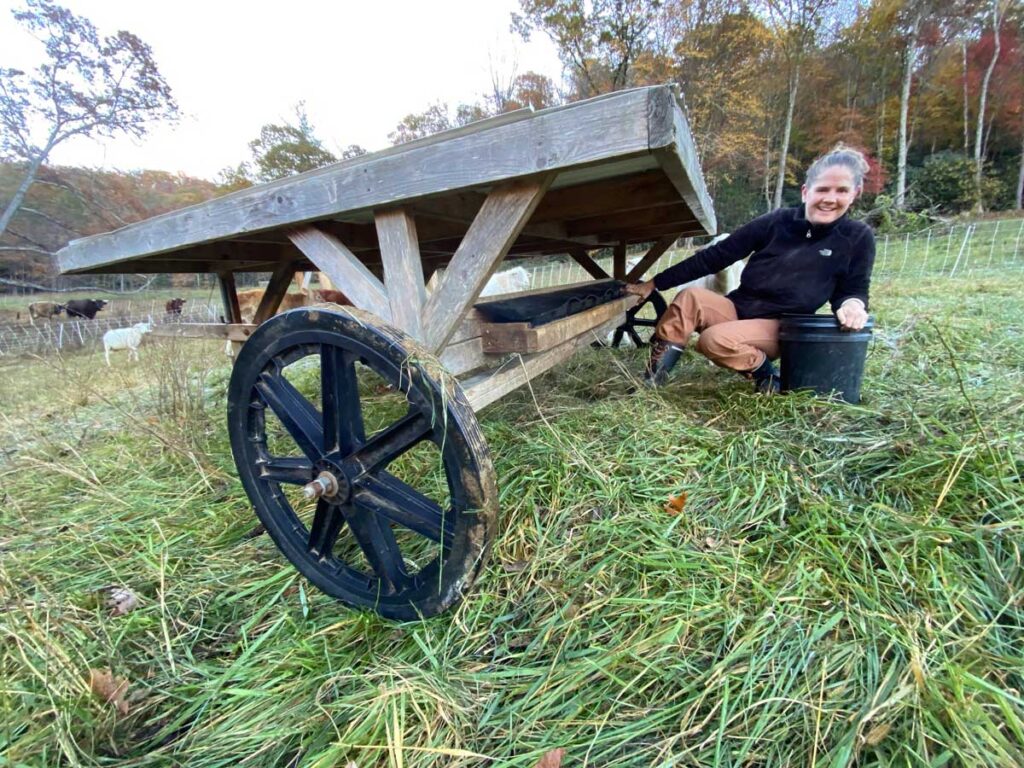
Grass Tetany (hypomagnesemia)
Grass tetany presents with muscle spasms and a stiff gait, but often, the animal is just found dead. It’s caused by low magnesium levels in the blood and shows up most often in cows that are late in gestation.
Ill-Thrift
Calves that don’t grow as quickly as other calves are said to have ill-thrift. They will be weaker and fail to thrive, and this is due to mineral deficiencies.
Pica
Pica is a condition where cattle eat things like wood, plastic, rocks, the walls of the barn and soil to get a mineral they lack. Pica most often occurs with phosphorus deficiencies.
Gastrointestinal Distress
Gastrointestinal problems tend to be the most common mineral deficiency problems. Diarrhea often occurs because of a lack of copper.
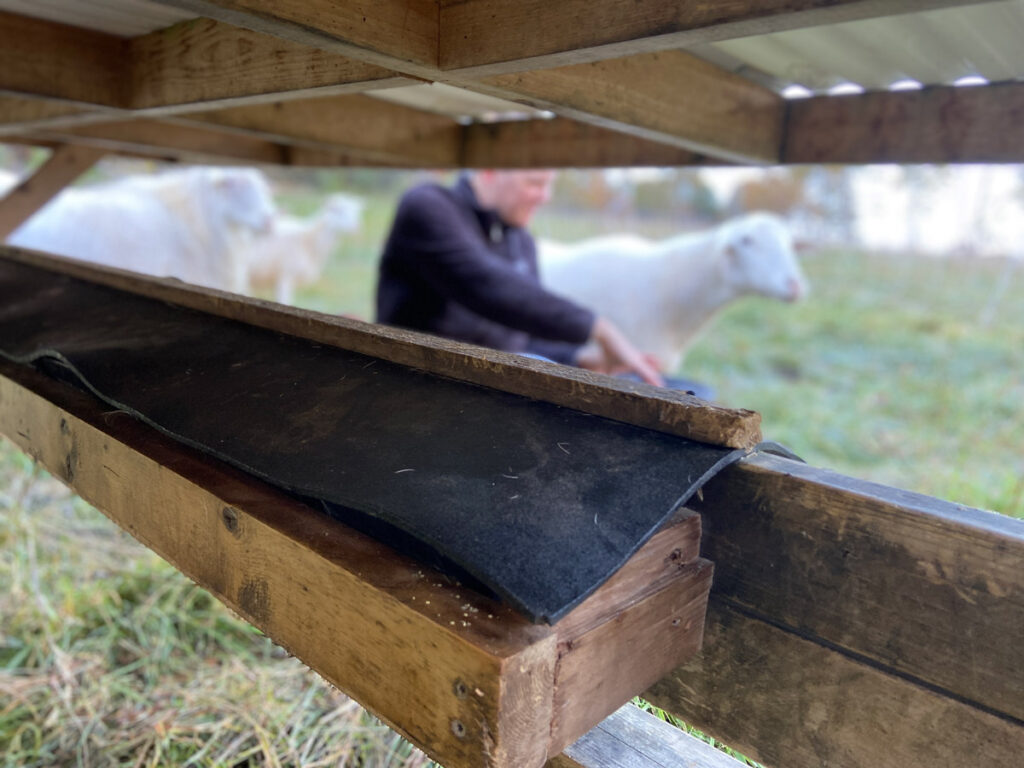
Mineral Shaw
If you’re no longer overlooking these critical minerals for your animals, chances are you’ll be raising a much healthier herd, while also improving your land!
So you may be wondering how to get these minerals to your animals. Do you just spread them out on the ground? Keep them in buckets? Add them to their feed?
The answer is the Mineral Shaw. This is a moveable feeder where you can distribute each mineral individually to give your ruminant animals free choice of which minerals their needing.
I’m offering my free downloadable plans for the mineral shaw here. Just enter your email address, and I’ll send them right over!
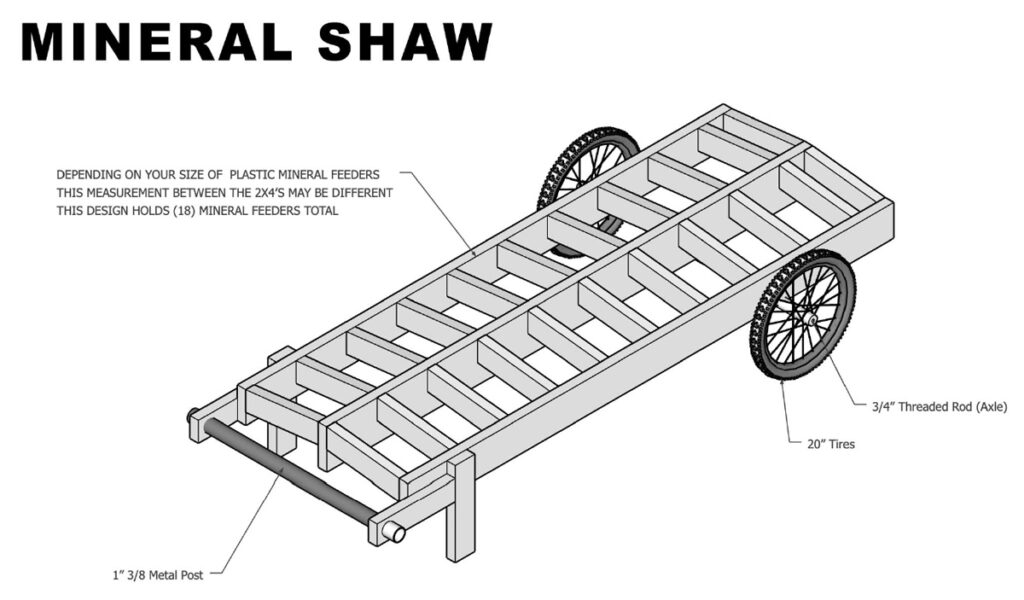
More Posts You May Enjoy
- What Farm Animals Eat in a Day
- Mixing Your Own Chicken Feed
- Feeding Chickens Without Grain – Cut Your Costs 100%
- Best Cow Breed for Milk
- Best Cuts of Beef to Choose When Butchering
- How to Assist a Natural Cow Birth
- Newborn Calf Care
- How to Prevent Mastitis in Cows
- How to Treat Mastitis in Cows
- How to Train a Cow to Milk
- How to Milk a Cow by Hand

